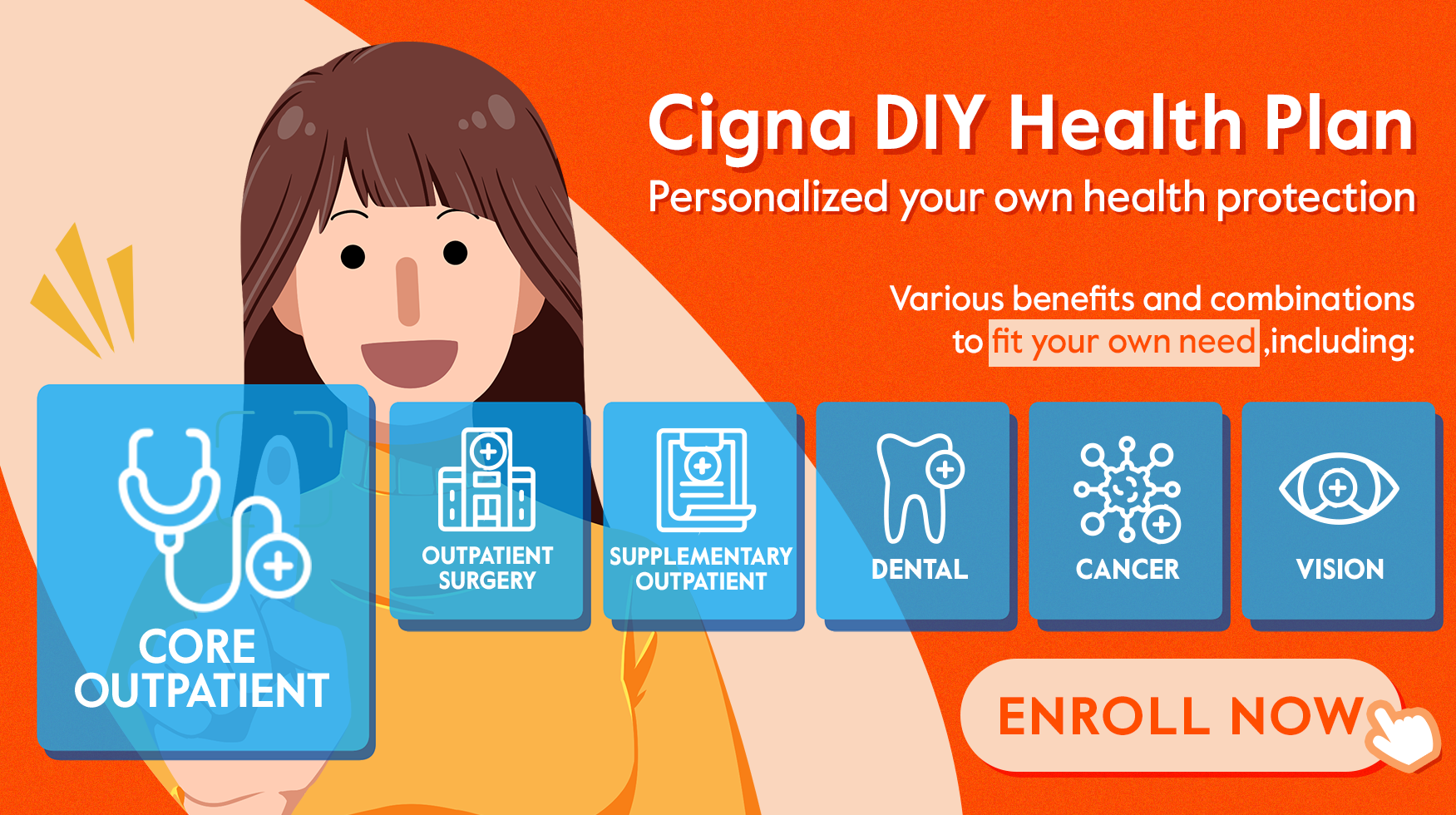Do you experience diarrhoea after meals even though you eat clean? If so, you may have Irritable Bowel Syndrome (IBS). In Hong Kong, 10-20% of the total population suffer from this syndrome, in which young women take a large proportion. 25% of patients who visit gastroenterologists are due to irritable bowel syndrome.
What Is Irritable Bowel Syndrome?
Irritable bowel syndrome (IBS) is a common disorder that affects the large intestine with causes unknown. Patients may even suffer from IBS with normal intestinal structures. Since it is a chronic syndrome without severe and persistent symptoms, it requires long-term care on diet management, living habits and stress relief to improve the symptoms. If the condition worsens, medication may be required.
Symptoms of Irritable Bowel Syndrome
If the following symptoms, especially stomach pain and diarrhoea, persist or alternately appear in more than three months in the past year, you may have IBS.
Symptoms of irritable bowel syndrome include:
- Abdominal pain
- Diarrhoea
- Frequent farting
- Bloating and gas
- Constipation
- Feeling incomplete during bowel movement
Causes of Irritable Bowel Syndrome
As mentioned above, the exact causes of IBS are still unknown, but some recent research shows that the following factors may play a role in the syndrome.
- Changes in gut microbes:Examples include changes in bacteria, fungi and viruses, which generally reside in the intestines and play a key role in health. Research indicates that the microbes in people with IBS might differ from those in healthy people. Other research shows that probiotics can relieve the symptoms of IBS.
- Muscle contractions in the intestine:The walls of the intestines are lined with layers of muscle that contract as they move food through your digestive tract. Contractions that are stronger and last longer than usual can cause gas, bloating and diarrhoea. Weak intestinal contractions can slow food passage and lead to hard, dry stools.
- Abnormal nervous system:Abnormalities in the nerves in your digestive system may cause you to experience greater than normal discomfort when your abdomen stretches from gas or stool. Poorly coordinated signals between the brain and the intestines can cause your body to overreact to changes that normally occur in the digestive process, resulting in pain, diarrhoea or constipation.
- Stress: According to Dr Ho Kai Tin, a specialist in Gastroenterology and Hepatology, individuals who experienced stressful events or emotional distress are prone to IBS. Since the large intestine is an autonomic nervous organ connected to the brain, stress can affect your nerve functions and stimulate intestinal activities.
Treatments of Irritable Bowel Syndrome
For the purpose of treatment, IBS can be divided into three types.
- Diarrhea-predominant: Antidiarrheal drugs, antispasmodics and probiotics to help reduce bloating and relieve pain
- Constipation-predominant: Fiber supplements and laxatives to promote bowel movements
- Mixed: Combine the treatments above
When necessary, your doctor may prescribe anti-anxiety drugs and antidepressants to relieve stress symptoms.
Diet of Irritable Bowel Syndrome: Low FODMAP Diet
According to the research done by the Monash University of Australia, FODMAPs are sugars that are not absorbed properly in the gut, triggering symptoms in people with IBS. Therefore, the University researchers developed the Low FODMAP Diet to reduce the symptoms of IBS and improve the lives of patients.
FODMAP refers to ‘Fermentable Oligosaccharides’, ‘Disaccharides’, ‘Monosaccharides’ and ‘Polyols.’
The Low FODMAP Diet cuts down the intake of FODMAP foods and then figures out the irritants from each category. The goal of this temporary and restrictive diet is to eliminate the irritants from your daily diet.
|
Types |
Food Examples |
|
Oligosaccharides |
Wheat, rye, beans and garlic and onions |
|
Disaccharides |
Diary Products |
|
Monosaccharides |
Apples, avocados, cherries, figs, peaches and plums |
|
Polyols |
Low-calorie sweeteners, such as sugar-free chewing gum, sweeteners in soda |
However, a low FODMAP diet may not be suitable for everyone. Please consult your doctor before starting the diet.
Treating Irritable Bowel Syndrome with Traditional Chinese Medicine
According to Traditional Chinese Medicine, irritable bowel syndrome is due to liver depression and spleen deficiency caused by excessive pensiveness. Persistent diarrhoea leads to a repeating cycle of whithered intestine and subsequent constipation with the use of laxatives.
TCM treatments focus on soothing the liver, strengthening the spleen, regulating the ‘qi’ and stopping diarrhoea by mixing white peony, atractylodes, tangerine peel and divaricate saposhnikovia as the remedy.
General Tips for Digestive Health
To have good digestive health, it requires daily discipline regarding your diet and lifestyle, such as:
- Eat more fibre: For healthier and more regular bowel movements, consume foods rich in dietary fibre. Apart from fruits and vegetables, complex carbohydrates like oats and brown rice are rich in insoluble fibre, which will add bulk to your stool.
- Drink more water:Drinking 1.5 to 2 litres of water per day is beneficial for your digestive system. Furthermore, you are recommended to drink a cup of warm water, around 300 to 400cc, to foster your bowel movement.
- Do not eat three hours before bed:Establish a discipline to tallow your intestines to take a rest while sleeping.
- Abdominal exercises:These exercises help intestinal peristalsis, relieve stress and reduce pressure on the stomach.
Insurance that even covers stomach ache? Cigna DIY Health Plan enables you to freely choose from various protection benefits to customise your plan to your individual needs, including dental coverage, regular oral check-up, treatment cost and emergency. Tailor your health coverage now.


